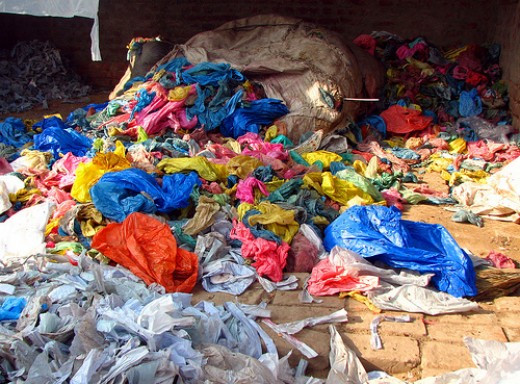Plastic-Eating Fungus May Chow Down On World's Waste Problems

An expedition to the Amazon by a group of Yale researchers has led to the discovery of a fungus that can utilize and break down polyurethane, one of the most common, and pollutant, industrial plastics in use by man. They hope the plastic-eating fungus can also eat away at the world's waste problems.
The fungus, pestalotiopsis microspora, has been found by scientists to be able to subsist on a diet of only polyurethane. What's become of even more interest to researchers is its ability to do so in an anaerobic environment -- meaning, the microspora can degrade the plastic in an environment without oxygen -- the perfect match for chowing down some trash at the bottom of a landfill.
Polyurethane is one of the most destructive synthetic substances for the planet. Other methods of disposal usually yield dangerous carbon monoxide.
The fungal findings were reported in the article Biodegradation of Polyester Polyurethane by Endophytic Fungi in the journal of Applied and Environmental Microbiology, with the note in its abstract stating the discovery is a promising source of biodiversity from which to screen for metabolic properties useful for bioremediation.
The group of students were a part of Yale's annual Rain Forest Expedition and Laboratory in the Amazon.
© Copyright IBTimes 2024. All rights reserved.





















